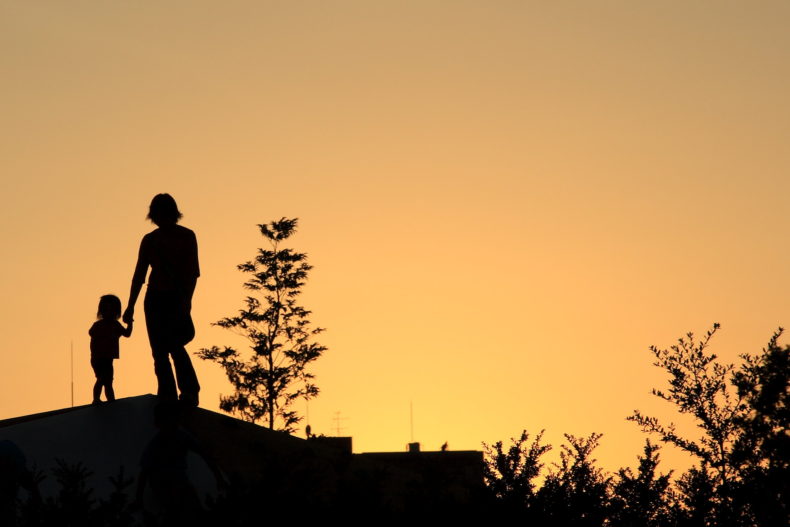
I have been a newshound for a long time, but ever since the start of the Covid-19 outbreak, my consumption of the stuff has reached absurd levels. I spend hours checking headlines and Twitter, desperate for some fresh morsel of information: an update of confirmed case numbers (local, national, global), an official who said something bracing or stupid, anything. The worse the news, the better. It feels more real somehow. “You can’t go on like this,” my wife told me during one recent bout. “It isn’t good for you. You can’t possibly read everything.”
Try me. My family lives in Seattle, where the outbreak in the U.S began. From our house we can see Kirkland, the suburb where the first coronavirus cluster bloomed out of a senior care center. Since late January we have watched as the virus spread in horrifying slow motion, the numbers ticking up, then leaping, and now who knows where or when they will stop.
A few weeks ago, when an epidemiologist tweeted that the virus had likely been creeping about the region undetected for weeks, I felt a strange giddiness that I took at the time to be relief. Covid-19 was among us and life as we knew it had not ended, right? But then it started to. All the schools closed, first for two weeks, then six weeks, and now for the school year; the libraries were next, which hit my wife especially hard, since she considers them the spine of a functioning society; then most of the stores, the playgrounds, the parks. Now we are locked down, allowed out only for essential business.
These days I spend most of my time at home, waiting for my turn to come, hoping it never does, and trying to teach my daughter what math and reading I can in place of her excellent teacher. All the while I sneak glances at my phone. Isolated in this way, cleaved both to and from the world, the chatter of the newsverse can become almost unbearably loud. Headlines scream, and tweets land thick and fast: rising death tolls, good advice, bad advice, a health care system on the verge of collapse.
Too much, too much. The other day, I decided to take my daughter for a hike. (Thankfully getting outside is still considered essential business.) We drove out of the city to a small mountain so stitched with trails that our chances of running into more than a few people at any one time were low. Traffic was light—it is now—and we made good time, sailing along the eerily empty interstate. When we reached the trailhead there were only a couple of cars. We bundled out and set off, climbing through the second-growth forest common to this part of the Puget Sound region. We exchanged smiles with the few people we passed while being sure to leave plenty of room, friendly but wary even by the Seattle area’s famously chilly standards.
Soon we had the trail to ourselves, save for all the small sounds of the forest. My daughter was in good spirits—she is young, so it is hard for me to gauge precisely how much or in what ways this is affecting her—but I walked with my head down. It was impossible to escape my thoughts: of luck and guilt that I have the wherewithal to come out here; of lament for those who cannot, for whatever reason; of dread at all our general circumstances. Through this fog a movement would draw my attention every so often, and I would look up to see a squirrel, a chipmunk. We would gaze at each other for a second or two before it dashed off. Left more or less to its own devices, the space I think of as Nature cares little for human drama. Although I usually take solace in that, the forest now seemed to me cold and indifferent. But why should I expect sympathy from a squirrel that has plenty of its own problems? (I never saw a wild thing / sorry for itself.)
After a couple of miles we reached our destination. We sat down and ate a little food and jumped around a bit and then started back. It was late afternoon, the trees and understory and all their nascent leaves illuminated in golden light. I tried not to, but I could not help succumbing to the quiet beauty. I breathed it in, and the last line from a book I read long ago came to me: “Peace filled his chest.” What is the value of a moment’s stolen calm in times like these? I decided not to press it. Against a vast online wilderness, when the rest of my world had been largely shrunk to what was on a computer, inside my head, or outside my windows, this was shelter in place.
My daughter had walked ahead of me, her hands clasped behind her back, alone with her own thoughts. I watched her and then looked up again at the brilliant canopy, listened to the birds singing at each other. The high seeps of kinglets and creepers, the brisk exchanges of the chickadees, the chatter of wrens, their whole rich language distilled to its avian essence: Tweet tweet tweet tweet tweet!
Image courtesy of Flickr Creative Commons user Skyseeker
Thank you.
I’ve been reading Wendell Berry’s ‘The Peace of Wild Things’ almost daily. If you don’t know it, please look it up. It’s beautiful.